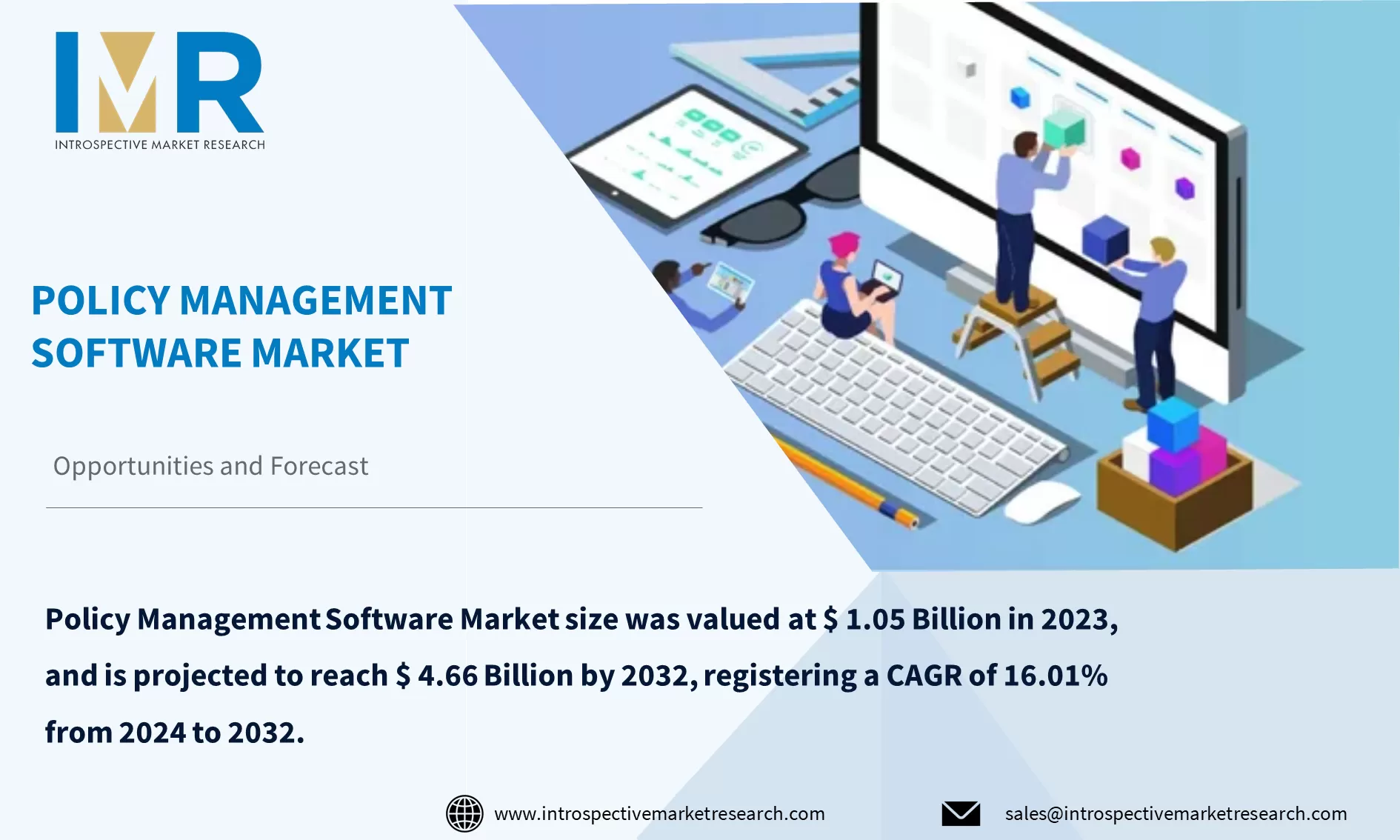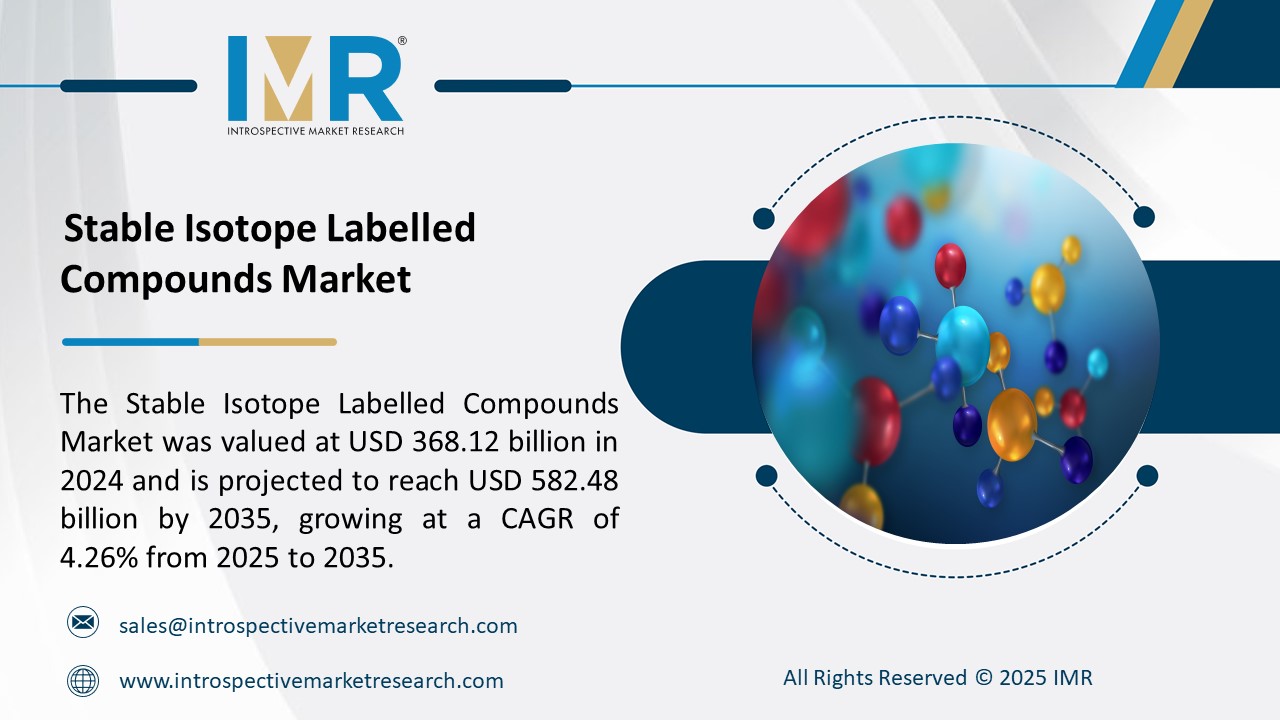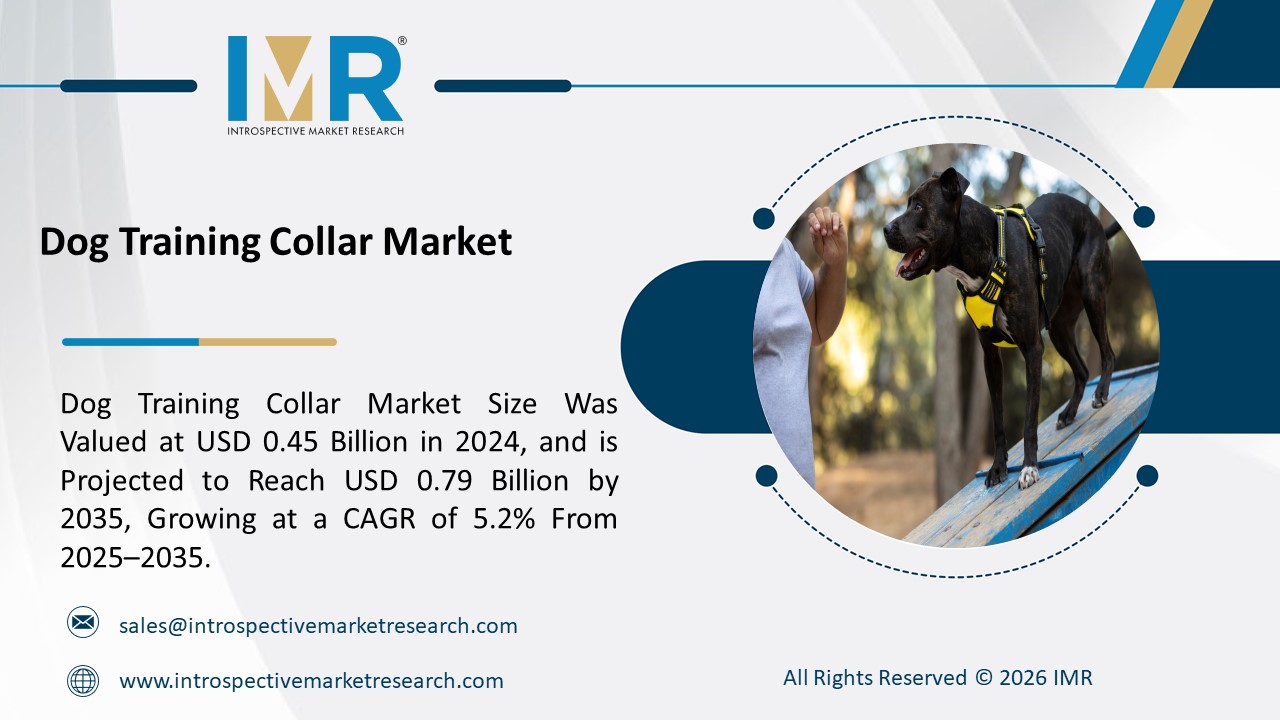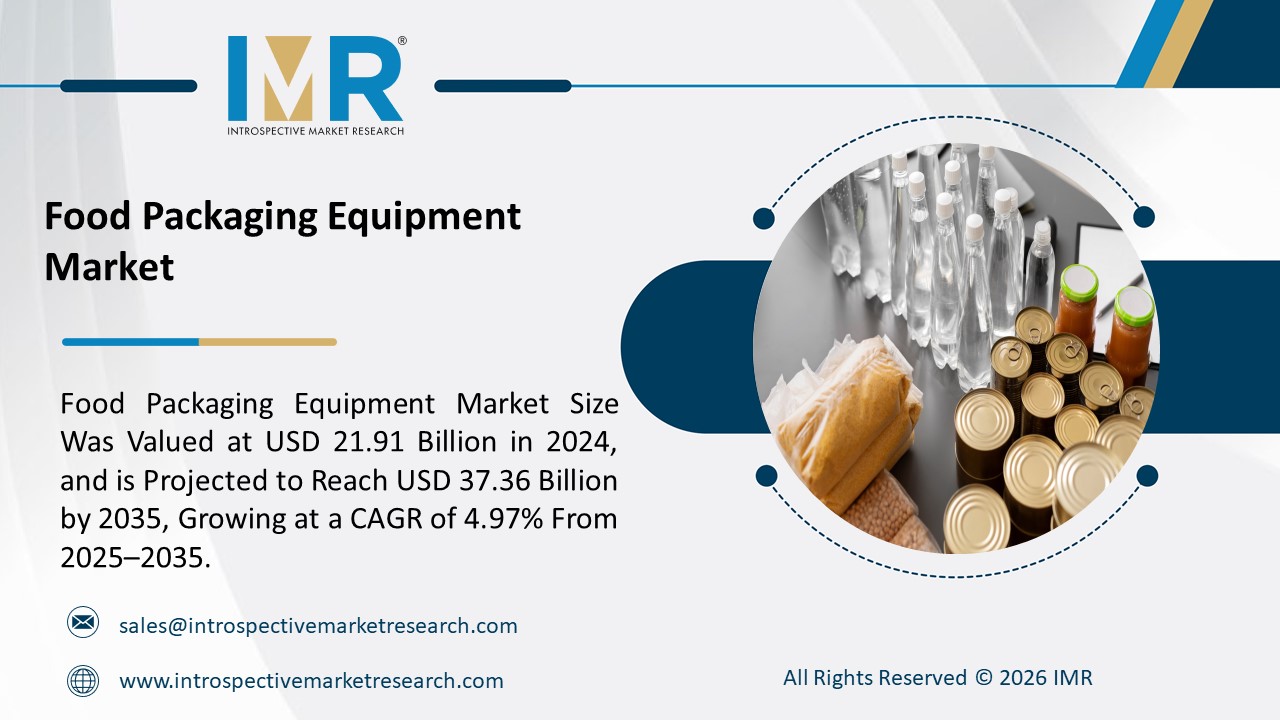Policy Management Software Market
According to a new report published by Introspective Market Research, titled, ?Policy Management Software Market by Component, Deployment Model, Enterprise Size, Industry Vertical, and Region: Global Opportunity Analysis and Industry Forecast, 2024?2032,?
the global Policy Management Software Market size was valued at $ 1.05 Billion in 2023, and is projected to reach $ 4.66 Billion by 2032, registering a CAGR of 16.01% from 2024 to 2032.
Policy management software simplifies the creation, distribution, and enforcement of organizational policies. It optimizes policy design, ensures regulatory compliance, and effectively monitors changes. This tool allows administrators to manage the policy lifecycle, effectively communicate changes, and monitor departmental compliance.
Policy management software optimizes the creation, distribution, and enforcement of policies in organizations. It facilitates efficient policy development using customizable templates and automated workflows to ensure compliance with regulations and standards. In addition, it helps to spread practices seamlessly between different departments and locations, which promotes communication and transparency within the organization.
The Policy Management Software Market is segmented into Components, Deployment Models, Enterprise Size, Industry Vertical, and regions. By Component, the market is categorized into Service and solution. By Deployment Model, the market is categorized into On-Premise and Cloud. By Application, the market is categorized into Small & Medium Enterprises and large Enterprises. By Industry Vertical, the market is categorized into BFSI, IT & Telecom, Energy & Utilities, Healthcare, Government & Defense, and Manufacturing. By region, it is analyzed across North America (U.S.; Canada; Mexico), Eastern Europe (Bulgaria; The Czech Republic; Hungary; Poland; Romania; Rest of Eastern Europe), Western Europe (Germany; UK; France; Netherlands; Italy; Russia; Spain; Rest of Western Europe), Asia-Pacific (China; India; Japan; Southeast Asia, etc.), South America (Brazil; Argentina, etc.), Middle East & Africa (Saudi Arabia; South Africa, etc.).
The expansion of the policy management software market is greatly accelerated by the complexity of regulations. As regulatory frameworks become more complex and stringent across industries, organizations face increasing challenges to ensure compliance with evolving standards. Policy management software is an essential solution that provides streamlined processes for creating, implementing, and enforcing regulatory policies.
Integration with other business applications is a major opportunity to expand the market for policy management software. As companies strive to streamline their operations and increase productivity, incorporating policy management software into existing business systems is becoming a key strategy. This integration optimizes workflow processes by aligning policy data with critical applications such as document management, compliance tracking, and employee training platforms.
Global Policy Management Software Market, Segmentation
The Policy Management Software Market is segmented based on component, deployment model, enterprise size, industry vertical, and region.
Component:
The Component segment is further classified into Service and Solution. Among these, the solution sub-segment accounted for the highest market share in 2023. The dominant position of the solutions segment is capable of accelerating the growth of the political management software market. Companies are increasingly emphasizing compliance and risk management, which is driving the demand for customized software solutions. Policy management software plays a key role in streamlining policy creation, communication, and enforcement, providing an invaluable tool for effectively navigating complex regulatory frameworks.
Industrial Vertical:
The Industrial Vertical segment is further classified into BFSI, IT & telecom, energy & utilities, healthcare, government & defense, and manufacturing. Among these, the BFSI sub-segment is anticipated to show the fastest growth by 2032. Driving the expansion of the insurance software market is the BFSI (banking, financial services, and insurance) segment, which has the largest market share. In this area, strict regulatory measures and the need to create robust risk management solutions have encouraged the adoption of policy management software. Financial institutions and insurance companies rely on these solutions to ensure compliance with evolving regulations and simplify procedures related to insurance contracts.
Region:
The Policy Management Software Market in North America is projected to show the fastest growth by 2032. The rise in government regulations and initiatives in the region is encouraging manufacturers to opt for green packaging. North America is emerging as a key region poised to lead the expansion of the political management software market. Its dominance is fueled by several factors such as a strong regulatory environment, technological advancements, and widespread adoption of policy management solutions across industries. In industries such as finance, healthcare, and manufacturing, strict regulatory measures are forcing organizations to increasingly rely on policy management software to ensure compliance and effectively mitigate risk.
Some of The Leading/Active Market Players Are-
- SAI Global (USA)
- MetricStream (USA)
- IBM Corporation (USA)
- RSA Security LLC (Dell Technologies) (USA)
- NAVEX Global (USA)
- Oracle Corporation (USA)
- Compliance Quest (USA)
- Master Control Inc. (USA)
- Resolver Inc. (Canada)
- Process Gene (USA), and Other Active Players
Key Industry Developments
- In April 2024, Revvity Inc. through its software and IT division, Revvity Signals, announced an innovative software solution. The new offering, Signals Synergy?, has revolutionized collaboration, project management, and communication between pharmaceutical and biotech sponsors and their third-party contractors. Signals Synergy responded to the perennial challenge of relying on email or a file-sharing platform to communicate complex scientific findings.
- In April 2024, Cloud Software Group Inc. and Microsoft Corp. announced significant progress in their partnership, confirmed by an eight-year strategic agreement. This agreement strengthened collaboration on virtual application and desktop platform Citrix? marketing strategies while advancing the creation of innovative cloud and artificial intelligence solutions through an integrated product roadmap.
Key Findings of the Study
- The solution sub-segment held the highest market share in 2023, driven by the emphasis on compliance and risk management.
- The BFSI industry vertical is anticipated to experience the fastest growth by 2032 due to stringent regulatory measures and the need for robust risk management solutions.
- North America is projected to show the fastest regional growth by 2032, supported by a strong regulatory environment, technological advancements, and widespread adoption of policy management solutions.






